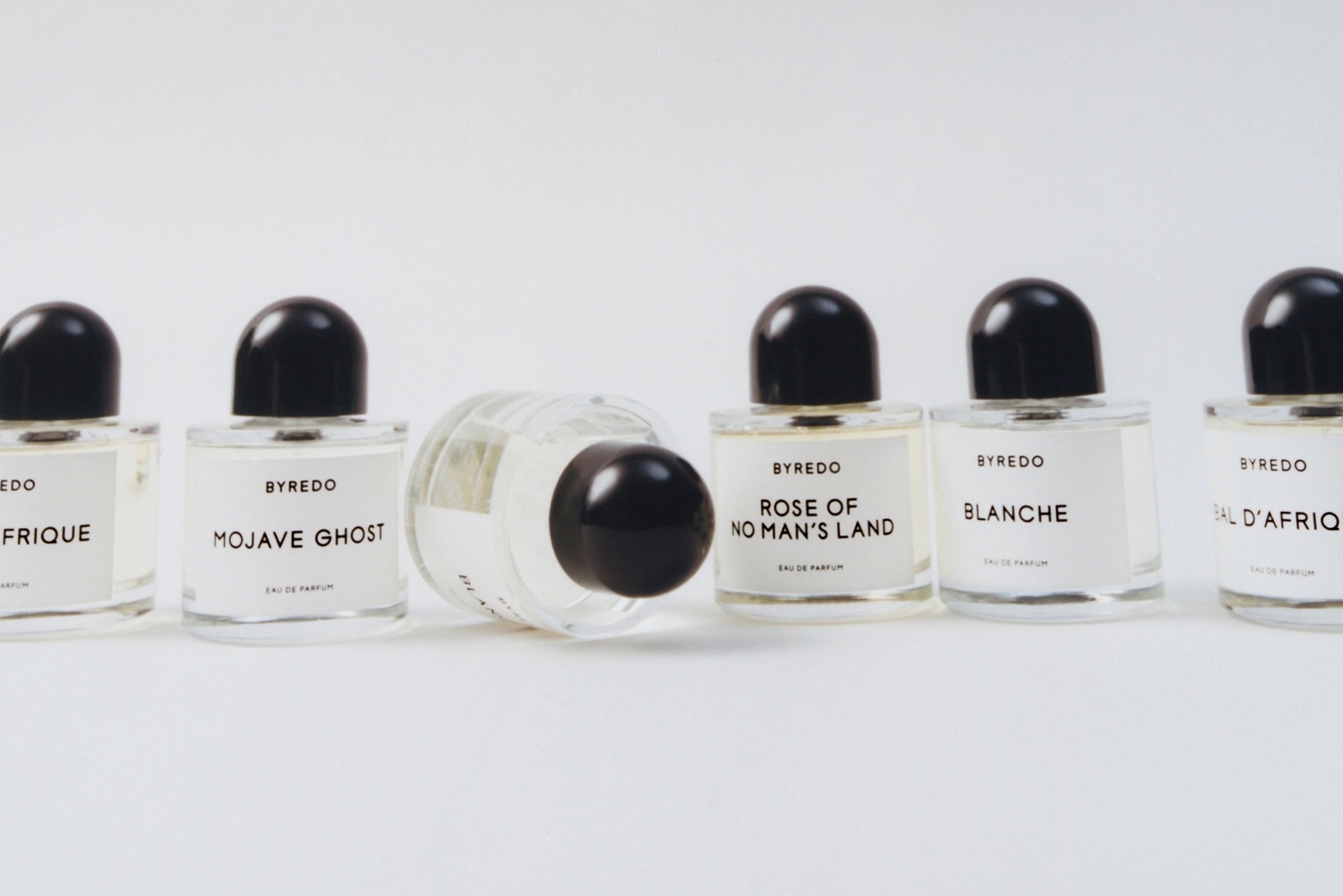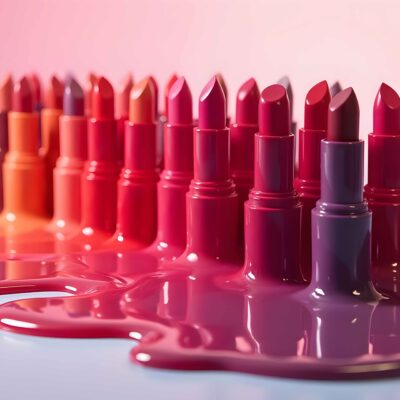
Amid Fretting About A Down Market, Byredo Inks A $1B Deal With Puig. Is It Just A Blip?
With the United States roiled by economic volatility, many beauty investors, investment bankers, executives and entrepreneurs have been predicting deal flow and valuations will ebb—and their predictions could absolutely come true. However, recent beauty news has thrown a wrench in them.
After speculation that L’Oréal was set to acquire Byredo, Puig revealed last week that it won the sweepstakes for the luxury fragrance brand in a $1 billion deal. The revenue multiple on the deal is roughly 10X based on reporting by trade publication Women’s Wear Daily that Byredo has generated more than $100 million in sales.
To explore whether the transaction is a one-off or part of a larger trend, in this edition of our ongoing series posing questions relevant to ongoing beauty, we ask 15 beauty industry insiders, including investors, executives, entrepreneurs, marketers, consultants and executives, the following questions: What do you think Puig’s acquisition of Byredo says about the beauty market? Is it a blip or evidence of broader dynamics? What should emerging beauty brands draw from Byredo‘s trajectory?
- Rich Gersten Co-Founder and Managing Partner, True Beauty Ventures
I think Puig's acquisition further illustrates that beauty is not slowing down. In a world where markets are unsettled and the rest of the world is talking everyday about a recession, the beauty industry sees ones of its largest deals in a category that has not necessarily seen as much M&A activity or the rich multiples as some of the others like skincare. This only further demonstrates how much growth this industry still has.
Two years ago, fragrance was not often a topic of conversation, and during a global pandemic where people did not leave their homes or attend social events, the fragrance industry experienced strong growth from both home fragrance and fine fragrance). It was shocking and has really changed how retailers and consumers think about the category, more for self care and self expression than for just smelling good for others. I think this deal is an example of how our industry is always evolving, and with the consumer need for self expression and self-care, our industry will always be at the forefront of change.
As for other beauty brands, what they should understand is this was not an overnight success story. Byredo, with the support of Manzanita, was able to grow this business on a steady path over a longer time period, not at a growth-at-all-cost scenario.
Brands need to understand that, in order to succeed, and especially in this environment, you will need more than a great product or great story. It is very competitive out there, brands need strong founders, strong margins, strong community building activities and strong investors, partners or advisers to help them navigate the unknown. It is critical to build a strong brand and that takes time.
- Emilie Mascarell Founder, Emilie Consulting LLC
I think it’s representative of a larger dynamic in the industry. Customers are looking for fragrance and beauty brands with unique offerings and authentic positioning aligning with their lifestyle and values that resonates with them.
Larger companies are struggling to create this type of brand in-house despite the amazing talents they have because all their processes are heavy-handed and lengthy, they’re more risk-averse and tend to follow the same standardized approach. It also takes time to build this type of brand in a meaningful way, which can be challenging when you have investors looking to get quick results.
Acquisitions help them fill gaps in their portfolios as well as enables them to learn from acquired brands. It reinforces the market expectations for brands that have authentic and unique storytelling that connects with their customers’ lifestyle. Their innovations, their communications, their marketing, their distribution, everything should be created with the brand DNA and core values in mind.
Emerging brands should also think about what their ultimate goal is. If they’re successful, they will at some point reach that level where they will need more investment and support to keep expanding. Acquisitions can help accelerate their growth but come with a price as eventually most founders will end up leaving their brands as they aren’t really “theirs” anymore.
- Ransley Carpio Head of Venture Investments, Fortress Brand
Ben is a creator like none other, demonstrating patience and intention while building his brand for the past 16 years. This is made evident by the 23 unique fragrances over that time, waiting 12 years before expanding into other categories, including leather goods, makeup, and sunglasses...an assortment known as ByProduct. Despite the brand’s size and distribution to 150-plus countries, it still felt IYKYK, like an aspirational membership club whose entry cost of a $200 fragrance empowered self-expression.
For all this, Puig credited the brand as it now joins a select few that have exited with a $1B-plus valuation; a list that includes Charlotte Tilbury, who was also purchased by Puig in 2020 for a reported $1.5 billion. However, outsized valuations and return profiles such as this, particularly when compared to the sheer number of beauty brands, should be considered the exception and not the expectation by founders and investors.
While I sincerely hope that Byredo’s story inspires founders the world over, I strongly believe that today’s brands need to evolve with the ever-evolving values of today’s consumer. Patience, storytelling, lifestyle/community building, leadership, and staying true to your ethos will continue to be credited.
- Pamela Vaile President and Founder, Pamela Vaile Consulting LLC
Puig's acquisition of Byredo is significant for several reasons. It signals the importance of niche, artisanal fragrance brands that have been moving the industry forward in today's market with their high craftsmanship, quality materials and unique fragrance constructions.
Unlike the overproliferated, commercial fragrance market, which is defined by fragrances that are intensely consumer-tested, yielding watered-down fragrances that are designed to please a broad base of customers, Byredo takes pride in fragrance creations that are unique, purpose-driven, artisanal and emotionally connected with fragrances that are unique and memorable. They do not ask the consumer what the fragrance should smell like, they inform and lead the market.
The Puig/Byredo acquisition is very timely, as the fine fragrance market is on a critical growth trajectory following the pandemic. Consumers are hungry for self-care, self-indulgence, luxury and individuality in their fragrance choices. High-end fragrance brands are in demand, with double-digit growth in 2021 versus 2019 as evidenced by the explosion of high-priced brands such as Baccarat Rouge.
We are seeing this trend continue through the first quarter 2022 based on NPD recent results. I do believe this trend is here to stay for at least the next five years, as consumers rediscover the beauty of fragrance and high-performance beauty care in their thirst for luxury and quality.
While this is a huge deal and signals the success of Byredo, this brand was built over 16 years, which is a long time. What emerging brands can draw from this trajectory is that it takes time, with continued focus on branding, creativity, attention to product quality and consumer needs to build a dynamic, relevant niche beauty business.
I often tell my clients to consider the three important elements that define brand success, as they begin a beauty brand venture: 1). Analyze and understand the business environment and the consumer mindset of the market you are entering. 2) Understand the financial needs to build a business over time. 3) Understand that it takes time to successfully build a business.
- Lisa Wilson Founder, Scent&Strategy
The Byredo-Puig deal is a continuation, if not a punctuation, of the niche acquisition trend that will continue in the industry. Conglomerates continue to seek growth and freshness by acquiring disruptive brands that have already done the heavy lifting of risk taking.
Ben Gorham created a unique product portfolio perfectly curated to his ethos and aesthetic, while building a wildly passionate following. Visible and knowable as a brand founder with a purpose, Gorham represents the intersection of art, authenticity, personality, and ultimately, commerce.
- Eric Korman CEO, The Goodkind Co
I'm not surprised at all by the acquisition. It's a rather predictable outcome given the involvement of Manzanita a number of years ago. It reflects the basic tenet that, if you build a brand thoughtfully over time that reaches a certain scale in any CPG category, that brand becomes a prime target for acquisition by a large multinational in search of growth.
In this way, the beauty market acts like any other CPG category: Entrepreneurs look at the world differently than incumbents, and their activities and efforts serve as scaled R&D for large multinationals via M&A.
For teams leading emerging indie brands, the deal should reinforce a discipline to make decisions focused on building something durable over time, as opposed to chasing unsustainable short-term growth. Byredo was not an overnight success, and while I don't know Ben personally, I'm confident that it took much blood, sweat and tears to get it to this point, and he and the team deserve a lot of respect.
- Elizabeth Lim Strategic Advisor And Consultant, Elizabeth Lim Strategy & Consulting
Beauty M&A still is very viable and continues to show desirable multiples. Emerging beauty brands should continue to be inspired and stay on course. Byredo launched in 2006 and founder Ben Gorham spent years building a foundation in order to ensure growth at a constant pace. He was very purposeful in his approach, maintaining the aspirational perception of the brand through excellence in every way from product to experience.
Byredo also continually evolved to stay relevant and continue to speak new groups and different people of different demographics. Throughout the 16 years since inception, they protected their core values, focused on their customer and kept their eye on the future, and ultimately, the prize. Slow and steady wins the race. Congratulations Ben Gorham, Manzanita Capital and Byredo!
- Judah Abraham Founder and CEO, Slate Brands
Beauty startups want access to powerhouse conglomerates’ resources, like Puig, who has been involved in the luxury fragrance industry for over a century. Niche brands have a cult following that larger companies want to capture. However, they need to integrate the brand properly to not lose that following.
Puig is likely a more seamless fit than some of the original potential acquirers. For now, Ben Gorham, CEO and founder of Byredo, remains as chief creative officer to uphold the brand’s original audience.
Conglomerates are seeking to purchase innovative brands that can contribute to their successful future in the ever-changing beauty industry. This deal exemplifies the increasing trend of beauty acquisitions that we have seen in the past two years.
Emerging brands should draw from Byredo’s innovative and modern mission: sustainability, quality ingredients and luxury design. Their values were highly desired by various conglomerates and ultimately led to a partnership with Puig, who can now leverage their globally established distribution network to continue growing the brand.
- Jillian Friedman Founder, Fragrance Awareness
As a fragrance developer and teacher, I have an appreciation and passion for fragrance, the structure, the integrity, authenticity and the lineage. Byredo is a beautiful fragrance brand hat created a movement in fragrance, whose minimalistic style, yet exquisite quality fragrances achieved the very tall order in my book of finding the delicate balance between memorability and commerciality. That achievement is precisely because of its nimble size, creative visionary/founder Ben Gorham, and his desire and ability to take risks and collaborate with the finest perfumery talent.
A story like Byredo explains how niche fragrance houses today are driving the newness in fragrance trends. It is smaller brands not bogged down by layers of approval, consumer testing and the need to create blockbusters that are able to disrupt the status quo and create new innovative structures. This success has drawn the attention of many.
Relationships are important and carefully choosing a partner who will respect and allow the other to shine is the key to one not getting lost in the shuffle. In any acquisition there is always a fear of loss of control, changing formulas, discontinued SKUs, especially when a larger entity purchases a small brand.
Becoming part of family-owned Puig’s varied and prestigious founder-led brand portfolio as opposed to a large publicly owned company does instill a sigh of relief that this match will likely be a supportive one. Puig has always been an attractive house to me, one that has held exquisite heritage, unique brands, allowing each unique voice to flourish. Here’s to hoping the same is true for Byredo.
The recent past has been about the large swallowing up the little fish. Perhaps this acquisition is about the small but mighty fighting back and preserving the creative power, the full circle of perfumery returning to its original roots of bespoke and niche.
- Bart Schmidt Managing Partner, Brands With Purpose
Another “niche” brand acquired by a big beauty house, Puig, one they will add to their current niche lineup, including Eric Buterbaugh and L’Artisan Parfumeur. An acquisition many [is what] niche brands dream of, but [they’re] not always the best fit in a big machine.
The larger corporations seem to struggle with the “indie” strategy: how to scale, how to reach full potential without losing the brand’s cache. Was Atelier Cologne really thriving at L’Oréal? What about By Killian and Frederic Malle at Lauder?
These acquisitions will continue to happen since the market is much more segmented and the traditional big (designer) brands continue to decrease in market share. Big beauty brands also tend to take a lot less risk with new fragrance launches and (over-) consumer test to the detriment of true innovation. However, that certainly doesn’t mean that niche fragrances are always better but they’re generally not afraid to take more risk.
Emerging indie brands should stay the course and remain authentic. The consumer will recognize and award it. Once this happens big beauty (read: money) will come knocking.
- Joel Palix Founder, Palix Unlimited
We know there were a number of strategic buyers fighting to acquire Byredo. This shows a great asset will always sell at a high value because the new owner is able to quickly boost revenues by leveraging its commercial, marketing, buying, e-commerce, supply chains teams worldwide. Fragrance has been a stellar category after COVID with niche fragrances performing particularly well in U.S. and China, hence the interest for such a brand.
The model of Byredo—a balanced combination of own stores, own e-commerce and wholesale—shows the virtues of an omnichannel strategy backed by a strong and unique brand positioning. It also demonstrates luxury beauty takes time to build,but is resilient to macroeconomics ups and downs.
- Carlos Timiraos General Manager North America, Foreo
Typically, most brands are just businesses. Byredo was always more than a business, more than a pure-play fragrance brand, more than a beauty brand or luxury brand. While group president at Manzanita-owned Space NK, I met with Ben Gorham several times. Byredo is Ben Gorham, and Ben is a disruptor. With Byredo, Puig didn’t just acquire a brand, they acquired Ben’s philosophy: giving the world all the enrichment it can handle.
My advice for emerging brands seeking to follow in Byredo’s footsteps…well, that’s a hard one since Ben Gorham is a visionary, and how do you advise one to be a visionary? But not being a visionary does not preclude emerging brand leaders from having a vision or being able to execute on that vision.
One piece of advice that I would give is to find the right support, support that is not only financial, but also that will protect and nurture your brand as Ben had found for his brainchild, Byredo, in Manzanita Group, a small family-owned VC that puts people first and truly understands what it means to be family.
- Nadine Tapia Founder, Tapia Beauty Group
I see the Puig/Byredo acquisition as a hopeful outlook of more sizable deals to come in the larger brand space. With luxury sales continuing to trend up combined with fragrance also being on the rise, Puig’s decision to acquire Byredo is an example of great timing, brand fit and solid future growth.
Puig has done a wonderful job at nurturing family-owned, meaningful brands, and they have created a hopeful path to emerging brands that build around client connection and purpose.
- Kim-Van Dang Founder, KVDAR Inc. and Van Dang Fragrances
I feel that the Puig acquisition of Byredo makes perfect sense. It's a great fit given that Puig has always been about championing iconoclastic creatives, including Jean Paul Gaultier, Dries Van Noten and Comme des Garcons.
Byredo's recent entry into the color cosmetics realm also transformed the indie fragrance house into a global beauty force. That must have made the brand all the more appealing to Puig, which took a majority stake in British makeup brand Charlotte Tilbury in 2020. Puig is on fire right now, and I am excited to see what they acquire next!
- Julie Garza Founder, Belleza Brand Blueprints
As the market continues to evolve and shift and with the fragrance category experiencing tremendous growth, this acquisition seems like the perfect marriage. Byredo has established itself as a modern luxury lifestyle brand with strong consumer connection and has achieved massive growth in the last few years with a gender-neutral approach. Puig’s established luxury label portfolio will contribute their expertise and development while acquiring a new demographic to their portfolio of brands.
I believe it is evidence of broader dynamics happening in the beauty lifestyle space. Puig like many others reorganized its business structure in 2020 and created three divisions, which included beauty and fashion setting the stage to acquire new brands that would allow them to reach their goal of 3 billion euros in sales in 2023.
Below are points emerging beauty brands should draw from Byredo’s trajectory:
- Carve out your niche space that will allow you to stay true to your founding principles.
- Listen to your consumer and ensure you are connecting with them at every touch point with your brand.
- Distribution channels and market strategies are key to your success. Pay attention to timing when entering new distributin and markets.
- Always keep your pulse on trends, white space opportunities for assortment and new categories that are right for your brand ethos.
If you have a question you’d like Beauty Independent to ask beauty entrepreneurs, executives, investors, marketers and other experts, please send it to editor@beautyindependent.com.






Leave a Reply
You must be logged in to post a comment.